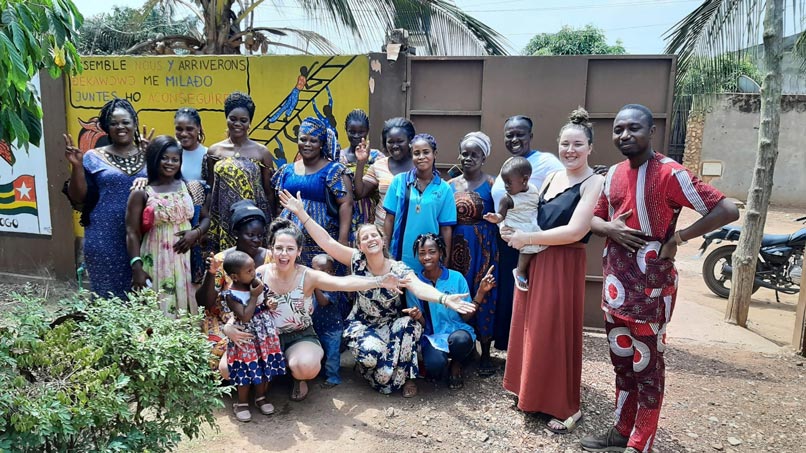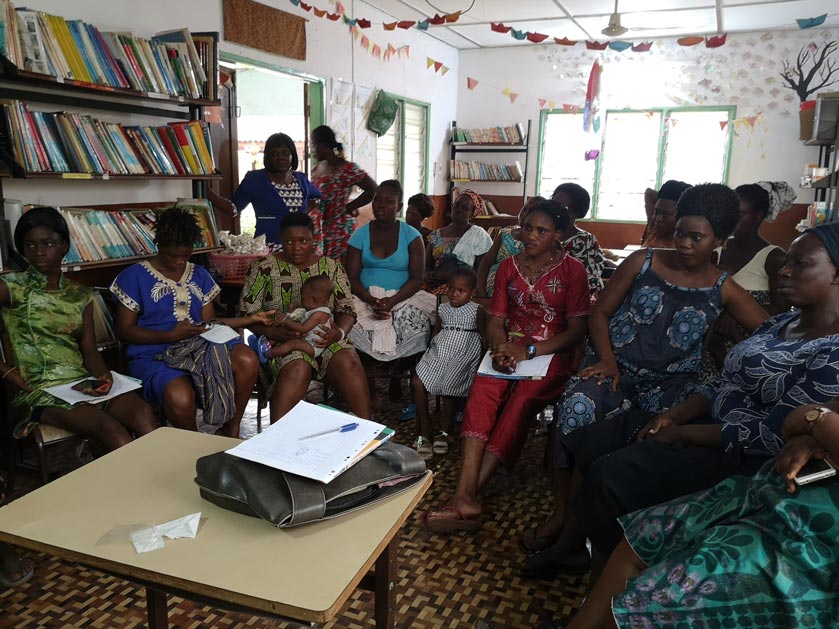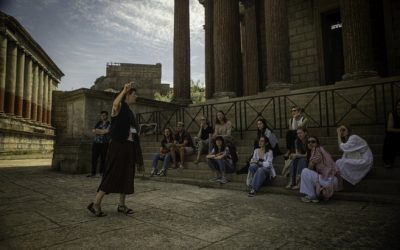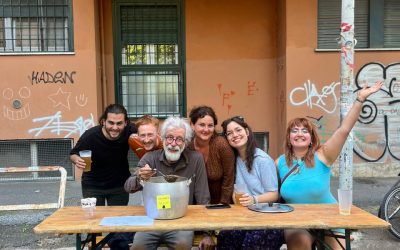Gender
Women and Community Development, a project that calls for sisterhood
Belgium
Belgium
Long term volunteering
Written by Delphine Declercq from Belgium
Sensitive to the feminist cause and invaded by a desire to escape after these last two confined years, I left for Togo in January 2022 for a project on women empowerment. Three months of emotions and learning that will serve me for life.
After several fruitless searches for a serious and reliable volunteer project, I discovered the SCI movement. I contacted the SCI Belgium with my request: a voluntary service on the theme of women empowerment. I had to choose a geographical area, which was Africa. I had never been there and this continent inspired me with an atmosphere of optimism, welcome and human richness. I am going to be shaken up in my habits and this idea fills me with stress and excitement at the same time.
Feminism here and there, its same fight?
Marjorie, the person in charge of long-term projects in Africa, made various proposals that met my expectations. Quite quickly, I felt carried and inspired by the project of the Astovot association in Kpalimé, Togo. It is called “Women and Community Development”. It is brand new and was conceived by Alid, a manager of the association, who noticed a low literacy rate among many women. Yet many of them are economically active and responsible for providing for their families. They therefore lack a solid foundation of literacy skills to manage their business. My mission will be to meet these women and create a project that will best meet their expectations.
A few weeks before my departure, I took part in the SCI training weekend on ‘development and interculturality’. I had already given a lot of thought to the project and had, among other things, put things into perspective with regard to the cultural differences I was about to see. However, it was during that weekend that a thought struck me: I was making this trip in response to feminist convictions that I hold dear, without having realized that feminism there is far from being ours. It is a different struggle that is being waged, at a different pace, at a different level. How will I react in Togo to a situation that makes my hair stand on end in Belgium?
Unarmed warriors
At the beginning of January, I landed in Lomé and, a few days later, I met my new family for the next three months. Cadi is the ‘head of the family’, she lives with her son Hugues and her niece Parfaite who are 16 and 17 years old. Quite quickly, I notice that she has a heart of gold and a strong character. No wonder, like many women she probably had to fight to build what she has today and to allow her children to get a university education and a dignified life. Cadi has a small and precarious shop, her income depends on customers and she has to do everything to attract customers: a complicated task when there are similar shops on every street corner.
Cadi’s case is not isolated. Most Togolese women have undeclared self-employed activities (hairdressers, dressmakers, retailers, processors), whose success depends almost exclusively on a clientele with low purchasing power, who are scattered in shops that are very similar. Few women have sufficient educational background to help them overcome the difficulties and make their activity more attractive. The reason of my presence in Togo is gradually becoming clearer.
Are they enthusiastic about the project?
Together with Alid, the coordinator of Astovot, we plan meetings with women from the neighborhoods to discuss the project and understand their needs. After a few meetings, I can see that most of the women are interested in what we are offering. Mainly those who had to leave school at a very young age and who feel a real handicap because they can’t read or write. They all want to be trained, to understand how to manage their business, to know their rights, etc. However, I notice that their speech and body language do not always express the same thing. There is a lot of restraint and some say they are interested without really expressing it in their intonation or gestures. I talk to Alid about it, to try to understand: are they really excited about the project or do they just respond to us with what we want to hear? He reassures me, sure of himself: they are all very interested in what we are proposing, but they protect themselves by not putting too much hope in it. Indeed, they have often been disappointed by empty promises. This observation adds pressure and motivation to me: we have to make this project a reality, I refuse to be the cause of another disappointment.
We start to draw up the main lines of the project. The ultimate priority is to set up literacy courses. In addition, we will offer training on various topics of interest to them, the use of Astovot’s premises for meetings and discussions, and finally a “counselling and listening” service to answer their questions. We organize a first training course on women’s sexual health, and it is a success. I then understand that it is not part of Togolese culture to say ‘thank you’ at every turn and to show emotions. I am satisfied with their participation, often active and interested, in our activities, which, in reality, are worth, much more than a simple thank you.
“Assi-lé-assimé’, hand in hand
Togolese women carry a huge mental and domestic burden: they are responsible for the education of their children and must provide for their families. It was very confronting for me to see women who have to struggle, without having the possibility, or even the idea, to question the system as we do in Belgium. To respond to this frustration (it is not my fight and it is not the one they want to fight today), I realized that I wanted to put my energy into passing on tools such as literacy, to give them value and confidence.
I am very happy and proud to have been able to participate in the creation of this program. Today, I only have one wish: that the project continues thanks to the involvement of new volunteers, and that it evolves towards even greater sorority, by giving Togolese women the opportunity to become literate in their turn. It is by working hand in hand that a virtuous circle will eventually be established.
You can still join!
Want to have your own volunteer experience for peace?
Read more Voices of Volunteers






